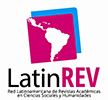The Uirapuru
children's literature through the charm of music and poetry
ARK:
https://n2t.net/ark:/35231/pergaminho.v2n1.23Keywords:
Poetry, Music, Uirapuru, OrpheusAbstract
In “O Irapuru”, sonnet by Humberto de Campos (1982), the lyrical subject gives the Amazon bird the epithet “The peaceful rubber plantation Orpheus”, because its singing, just as Apollo and Calliope’s son’s, makes everyone stop and listen. This enchantment power of music can also be of poetry, since its roots are related to singing. Giuliana Ragusa (2013) explains that the word “lyric” carries the noun “lyre”, a performance instrument in this genre, as it is observed in Orpheus. With the reading of the referred poem, this short study uses the comparative literature approach between the indigenous legend and the Greek myth in order to reflect on the benefits of the interdisciplinary perspective between music and poetry to the teaching of Youth Literature. Methodologically, this is a bibliographic work, having as the theoretical framework the studies of Segismundo Spina (2002), Roberval Pereyr (2000) and Giuliana Ragusa (2013), which were imperative to understand the link between music and poetry; the teaching proposition of Helder Pinheiro (2018) and the myths and legends concepts of Mircea Eliade (1998) and Luis da Câmara Cascudo (2005). Therefore, it is proposed a brief comparative analysis of these stories and the reflection of the poetry teaching in school classrooms.
Downloads
References
BETTELHEIM, Bruno. A psicanálise nos contos de fada. 2ª ed. Rio de Janeiro: Paz e Terra, 1979.
BULFINCH, Thomas. O livro de ouro da mitologia: histórias de deuses e heróis. 32ª ed. Ediouro: Rio de Janeiro, 2005, 412p.
CAMPOS, Humberto de. Poesias Completas. São Paulo: Opus Editora, 1982.
CASCUDO, Luis da Câmara. Dicionário do Folclore Brasileiro. 10ª ed. Ediouro: Rio de Janeiro, 2005.
_____. Geografia dos mitos brasileiros. Global: São Paulo, 2012.
ELIADE, Mircea. Mito e Realidade. 1ª. ed. São Paulo: Editora Perspectiva, 1998.
HALLAM, Susan. Psicologia da música na Educação: o poder da música na aprendizagem. Trad. Manuela Encarnação. Revista de Educação Musical, n 138, Janeiro-Dezembro 2012, pp. 29-34. Disponível em: https://www.apem.org.pt/docs/artigos-em-destaque/PsicologiaDaMusica_RPED_140_141_2014_2015.PDF. Acesso em: 9 jul. 2020.
PEREIRA, Jaquelânia Aristides. Poesia e música na sala de aula: experiência com o poema “A flor na festa”, de Cecília Meireles. Leia Escola, Campina Grande, v. 14, n. 2, 2014. Disponível em: http://revistas.ufcg.edu.br/ch/index.php/Leia/article/download/357/287. Acesso em: 11 jul. 2020.
PEREYR, Roberval. A unidade primordial da lírica moderna. Feira de Santana: UEFS, 2000.
PINHEIRO, Hélder. Poesia na sala de aula. 1. ed. São Paulo: Parábola, 2018.
RAGUSA, Giuliana. Lira grega. Antologia de poesia arcaica. Trad. de Giuliana Ragusa. São Paulo: Hedra, 2013.
SPINA, Segismundo. Na madrugada das formas poéticas. São Paulo: Ateliê Editorial, 2002.
ZILBERMAN, Regina. A leitura e o ensino da literatura. São Paulo: Contexto, 1988.
Websites:
Beatriz Kauffmann’s Web Site. Uirapuru. Disponível em: http://www.beakauffmann.com/mpb_u/uirapuru-1.html. Acesso em: 13 jul. 2020.
RESENDE, Lúcia. A lenda do Uirapuru, o pássaro mágico que traz muita sorte. 2020. Disponível em: https://www.xapuri.info/cultura/mitoselendas/o-uirapuru/. Acesso em: 5 jul. 2020.
Downloads
Published
How to Cite
Issue
Section
License
Copyright (c) 2022 Cláudia Oliveira Silva Rocha

This work is licensed under a Creative Commons Attribution-NonCommercial 4.0 International License.


